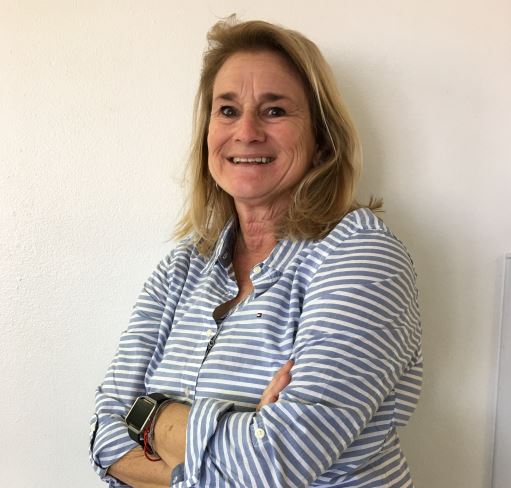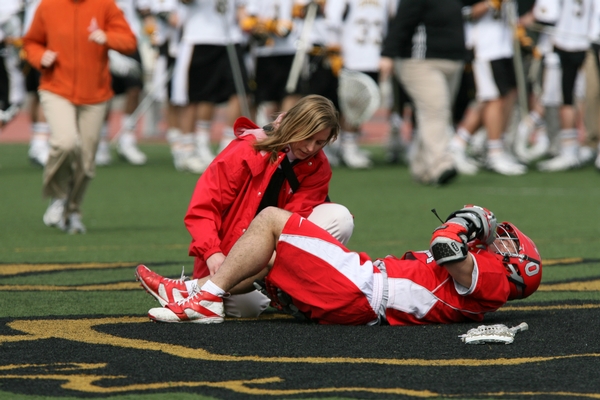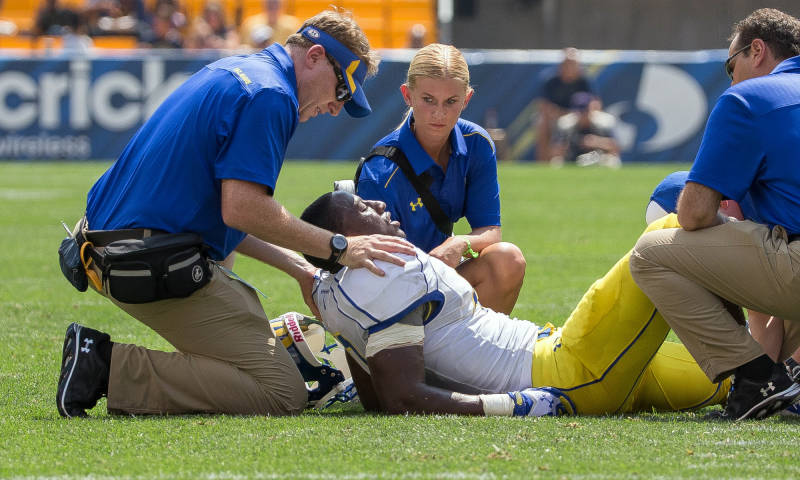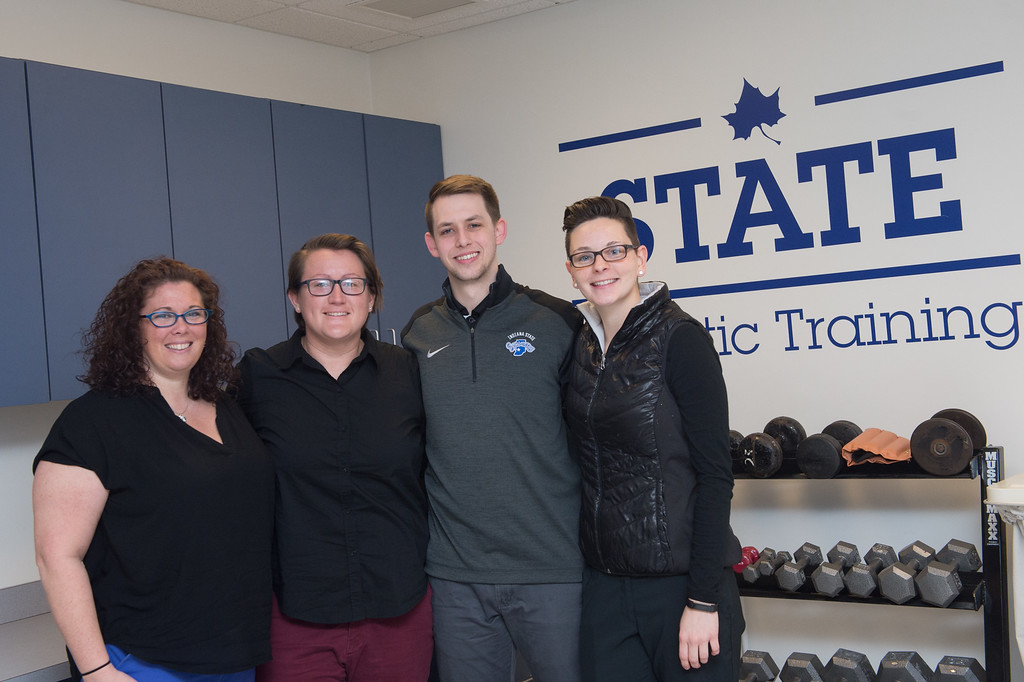
Article reposted from Indiana State University
Author: Betsy Simon
Three Indiana State University students in the Doctor of Athletic Training program will lead their first National Athletic Training Association-sponsored LGBTQ workgroup in athletic training this month.
As the workgroup’s founding members, Ashley Crossway, Emma Nye and Sean Rogers will lead the first diversity and inclusions workgroup of appointed members who include past and present NATA board of directors to create a mission, vision and foundation for the group’s future work, which received the NATA’s approval earlier this year.
“The DAT program has an emphasis on advocacy in the profession, so throughout the course of the students’ time here we have emphasized that in a variety of ways,” said Lindsey Eberman, associate professor in the applied medicine and rehabilitation department. “Our program requires a traditional research project and a practice-based research project, which provides a unique opportunity for students to do advocacy research.”
Crossway, Nye and Rogers talked about things they wanted to do to make changes in the profession and approached Eberman, who turned to colleagues. They suggested talking to alumni, specifically Marjorie Albohm, who was influential in mentoring the students before moving forward with their request to the NATA for the workgroup and their research.
Their research purpose was to survey the perceptions of athletic trainers and student-athletes about the LGBTQ community. They developed a survey that asked student-athletes perceptions of athletic trainers who identify as LGBTQ, athletic trainers’ perceptions of other athletic trainers who identify as LGBTQ and athletic trainers’ perceptions of student-athletes who identify as LGBTQ.
They went through the NCAA compliance officers to deploy one part of their three-part survey to student-athletes and worked with the National Athletic Trainers Association to establish a random sample of athletic trainers in Division I, II and III for their second and third parts of the study. The survey was completed by 623 student-athletes and 1,109 athletic trainers.Crossway’s passion for advocacy for the LGBTQ community developed long ago, but the Doctor of Athletic Training program helped her turn her passion into action.
“When we were in the master’s program, we had to write blogs for our advocacy website AT4AT, and I wrote one about the changing legislation when gay marriage was passed and there was some debate about my blog,” she said. “I met with Dr. Eberman and we reached out to someone in the profession about starting a members’ interest group in October of 2014. Essentially, I got shot down and I put it on the backburner.”
That is until Crossway and Nye began discussing research and joined forces with Rogers.
“I’m a member of the (Institutional Review Board) and we’ve heard of instances of individuals who were studying a particular population where the researcher was intimidated because of the research they were doing, and this is something we talked about before we distributed the surveys,” Eberman said.
But to the contrary, Crossway indicated, “I was surprised by how many positive emails we got when we were distributing our surveys. People were excited that we were doing this kind of research for the profession.”
The goal is this workgroup will eventually become representative of the entire nation, Eberman said.
“But these students have to lay down the groundwork for why it is important and what needs to be done and that could take time, partly because of the NATA’s funding structure,” she said. “You can’t just sit back. Even if the research gets published, if they’re not trying to get those results into the hands of people, if they’re not pushing for development of workgroups as an extension of the research, then it’s just a paper that is published. They’re reward is more work and more advocacy, but at least they now have a platform for that, whereas a year ago they did not.”
The results are being processed and will ideally create a platform to push for more advocacy for underrepresented groups within the NATA.
“A lot of the responses were positive, but there were also a lot of neutral responses and some negative responses,” Rogers said. “I think those negative and neutral responses are where we want to focus because LGBTQ individuals didn’t really have that advocate before the creation of this workgroup within the NATA, and we want to use the data to show the importance of the LGBTQ community having a voice within our profession.”
Crossway noticed respondents’ concerns for offending transgender people and uncertainty because of limited exposure to them. Similarly, Nye found a majority of athletic trainers expressed that they don’t have access to formal training or education on how to approach someone transitioning or other individuals within the transgender community.
“A lot of the athletic trainers responded that they didn’t know what pronoun to use and it makes them feel uncomfortable, but they said that if they knew which pronoun to use, they would have those types of conversations with athletes,” Nye said.
Eberman said Indiana State’s Doctor of Athletic Training program does offer a course on underserved populations in emerging settings and includes modules specific to this population.”We’re not perfect by any means, but I’m happy that we are at an institution that makes sure people know that this is an open and inclusive space,” she said.
Unfortunately, the NATA doesn’t have a support or advocacy structure for athletic trainers who identify as LGBTQ or other underrepresented groups, but Indiana State’s Doctor of Athletic Training program provided a good foundation for getting such a mechanism off the ground.
“Dr. Eberman and Dr. (Kenneth) Games have created a solid, forward-thinking and progressive group that allows us to take ideas that we want to focus on and are passionate about and run with it,” Rogers said. “If you get complacent with advocacy then it will drop back down. You have to advocate for what you are passionate about and for the people who haven’t historically had a voice, you have to give them a voice; but if you don’t continue advocating, they could fall back.”
The reality, Eberman said, is that athletic training’s roots were in coaching and physical education, not in health care.
“But the cultural norms have not changed with the profession,” she said. “In today’s political culture, people are not one thing. To me, this research demonstrates that. They are not just student-athletes. They are not just LGBTQ. They are not just athletic trainers. Instead, they are a culmination of things and we need to do a better job of recognizing people’s many facets in health care and in athletics.”
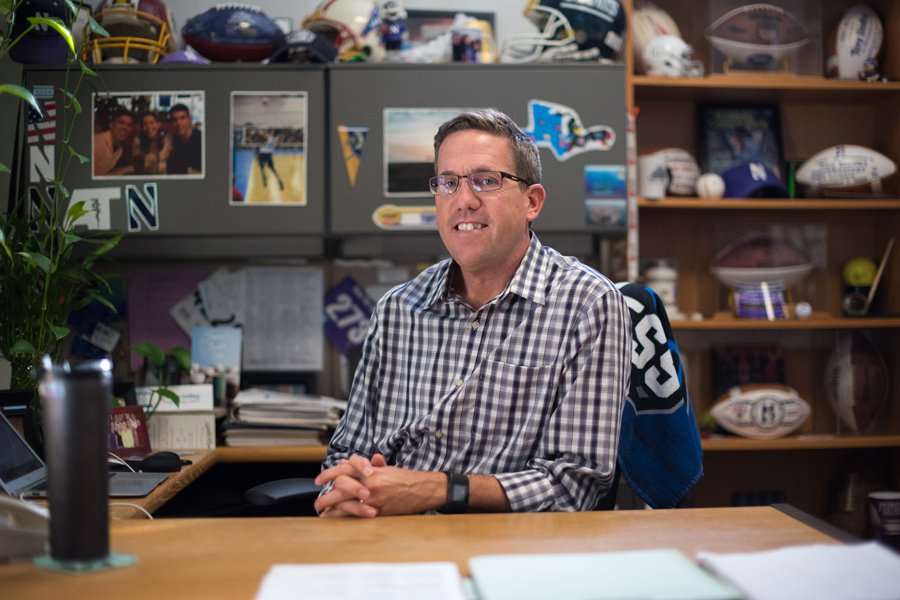
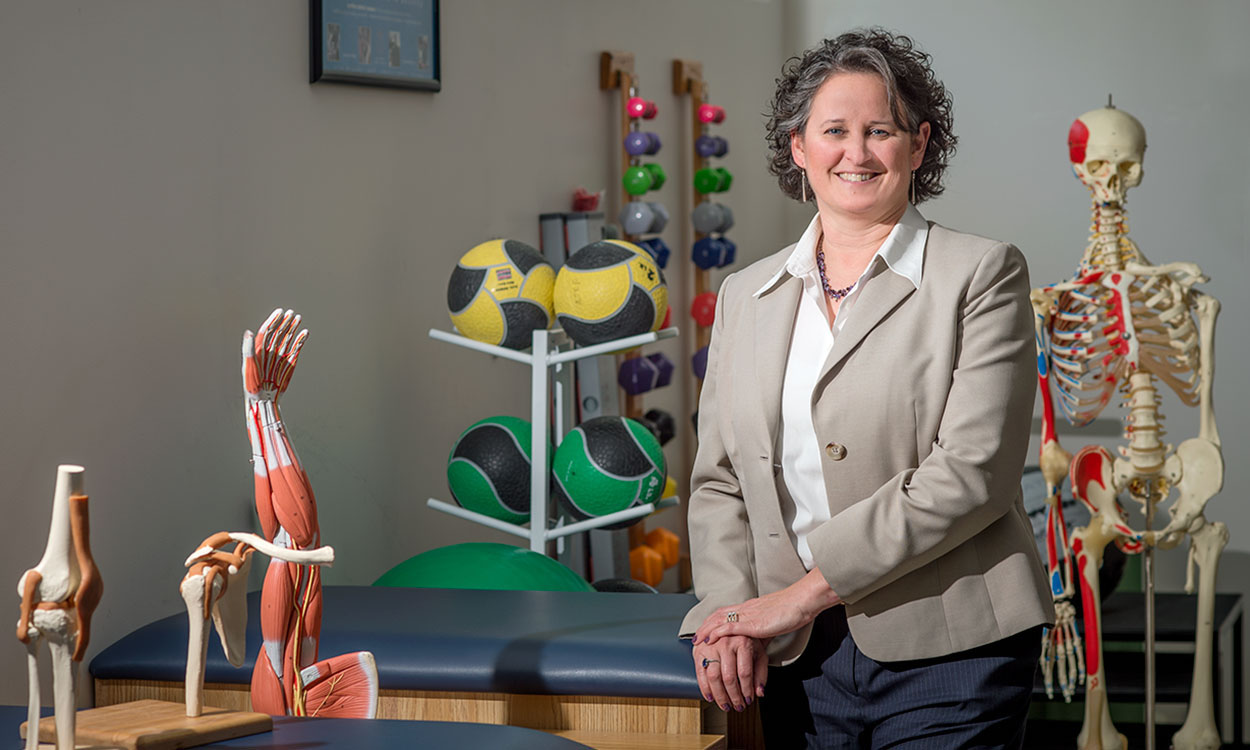
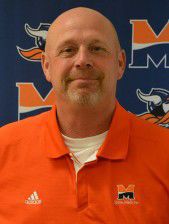
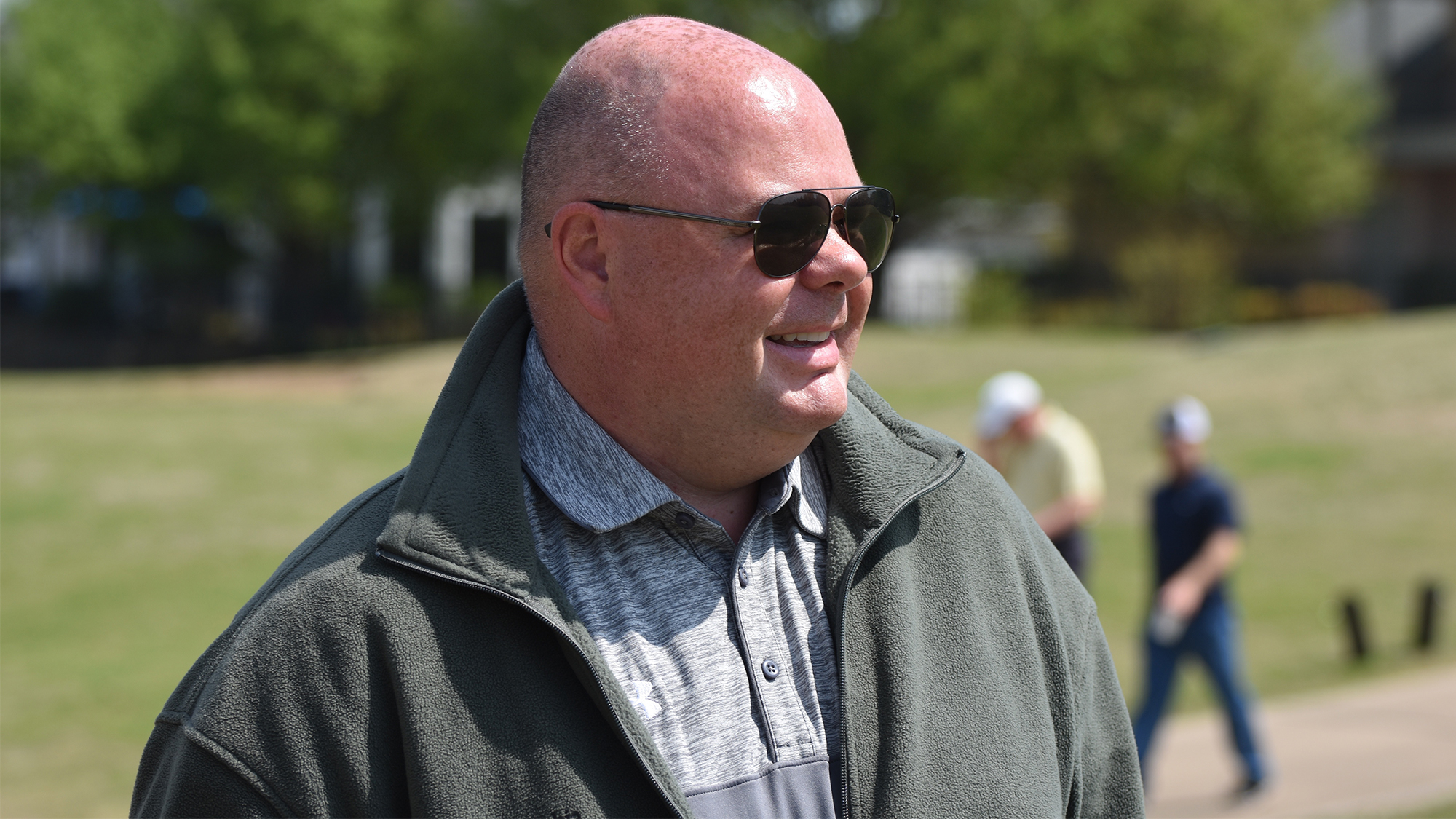
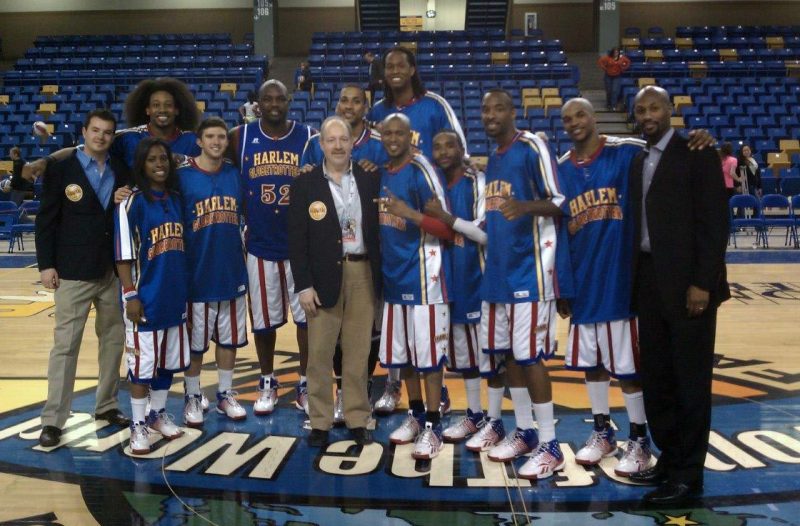
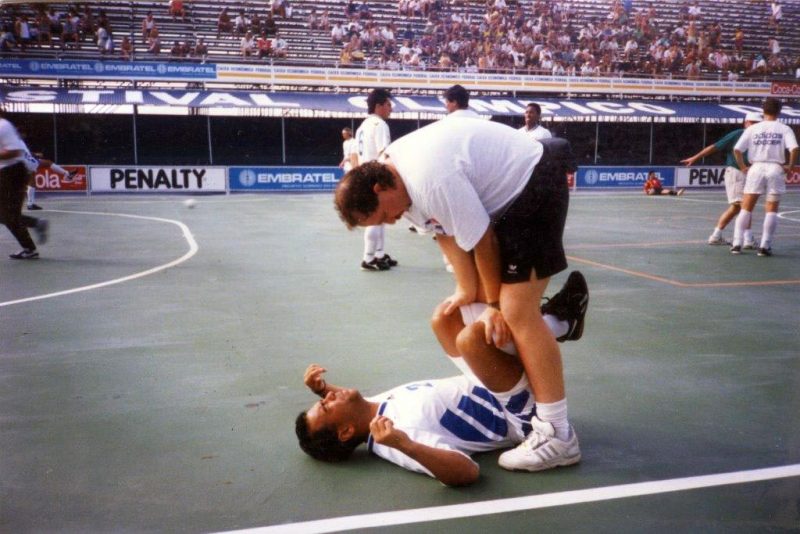
 As a seasoned veteran, Aaron mentors future ATs who are studying at Kent State University and The University of Akron.
As a seasoned veteran, Aaron mentors future ATs who are studying at Kent State University and The University of Akron.

